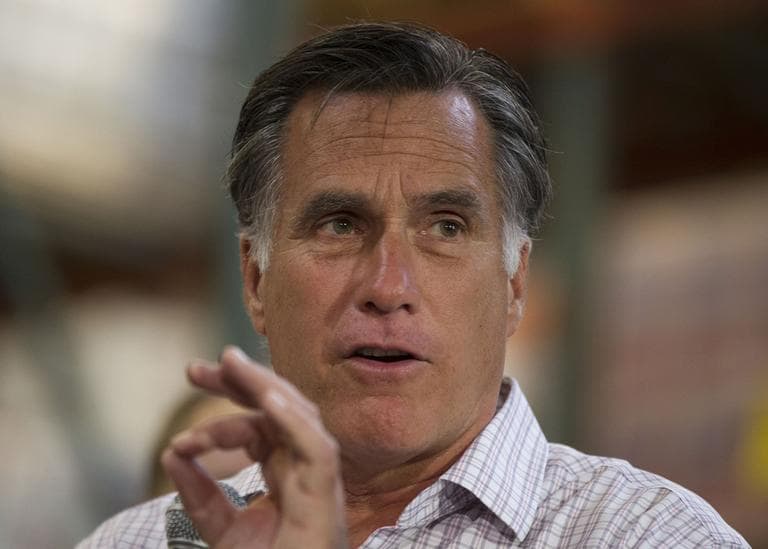Advertisement
Rationalizations For Electing Romney – Arguments We Won’t See In His Ads

Both Mitt Romney and Barack Obama advertise reasons to vote for them. But voters often come up with their own rationalizations.
As we recall from Obama’s 2008 campaign, voters often project hopes onto candidates — wishful thinking, we call it. With renewed attacks on Romney’s business record, this might be a good time to review less obvious reasons that some voters back him and why some undecided voters may decide not to vote at all.
Here are 10 arguments for Romney that his campaign probably won’t advertise:
Electing Romney will hasten tax reform. Indignation about Romney’s overseas bank accounts and his using a multitude of loopholes to pay a lower tax rate than middle class Americans will force him, as president, to lead the way in creating a fairer tax code. Otherwise, he won’t have the public trust and confidence needed to govern effectively.
As a consensus-builder, Romney would be more effectively bipartisan. Romney is criticized for flip-floppery, lacking core convictions, and being too willing to compromise principles. But if gridlock in D.C. has prevented needed solutions, perhaps his flexibility is a net plus.
Comedians need a president they can freely mock. Obama has not been a good target for satire. Comedians feel he’s too politically correct, and young audiences don’t see him as a funny phony. Say what you will about Romney, he is comedy gold. Remember when he tried ingratiating himself with Michigan voters by praising the height of their trees? Or how about when he tried to relate to auto-racing fans by saying that some of his best friends owned NASCAR teams? With such Mitticisms, it can be a golden age of comedy.
U.S. corporations will put their idle cash back to work. In economic news you often hear that companies are holding trillions of dollars in liquid assets on their balance sheets due to uncertainty about the economy. Yes, Romney doesn’t relate well to NASCAR fans and the unemployed, but he knows the psychology and incentives that spur investment and expansion.
Romney would do entitlement reform and austerity budgeting. Even many liberal policy analysts acknowledge that the U.S. is headed for bankruptcy if we don’t restrain spending in our major entitlement programs — Social Security, Medicare and Medicaid. Groups that oppose any entitlement reforms (like means-testing Medicare or raising the age of eligibility for Social Security) are too powerful within the Democratic Party to be pushed back by a liberal president. But if Romney fights for entitlement reform and less spending, some Democrats in Congress will yield, while putting all the blame on him.
Republicans in Congress will be less White House-centric. The GOP lost power and credibility when GOP congressmen supported higher spending proposed by President George W. Bush. And in recent years, Republican congressional leaders seemed focused on thwarting Obama — for example, talking more about repealing Obamacare than about what should replace it. Many conservatives will press GOP members of Congress to be more independent of a President Romney and put fiscal responsibility ahead of party loyalty.
Some liberal activists may prefer having a GOP president they can mobilize against. And some Hillary-for-2016 leaders seem unenthusiastic when speaking for Obama now. It may seem crass, but sometimes a party is better off losing one presidential election in order to gain seats in the mid-term elections and then win the next presidential contest. That’s what many Republicans feel about Gerald Ford losing to Jimmy Carter in 1976. The GOP gained seats in Congress in 1978 and even more in 1980 when Ronald Reagan led the ticket. Some Democrats in Congress likely feel that if Romney wins and becomes unpopular due to austerity measures, they’ll do better in congressional mid-term elections — just as they picked up legislative seats mid-term when Romney was governor.
If Romney personifies the GOP, the party will have to open up and grow to survive. If President Romney seems too country club-ish and out of touch, Republicans will have to be more conscientious in reaching out to Hispanics, African-Americans, young, poor and other voters. If you don’t think politics should be so polarizing, that’s a good thing.
There might be more risk in not changing presidents. While Romney was not a great reformer as governor of Massachusetts, there was incremental improvement in state government and the economy. Some voters will decide that it’s better to risk change — even if they don’t have high hopes for the challenger — than risking another four years of stagnation.
Winning his dream job, Romney will finally be comfortable in his own skin. Part of Ann Romney’s job is to humanize her spouse, making him seem less like an android. By the end of his first term, that project should be complete — he will be convincing as a terrestrial being. So if alien invaders demand, “Take me to your leader,” we won’t say, “You don’t already know him? We thought he was one of yours.” Or, another scenario — perhaps the public will adjust its view of Romney and no longer find him awkward and painful to listen to. I envision a Newsweek cover with a photo of Romney riding a Jet Ski while wearing a business suit... Headline: “Let Mitt Be Mitt.”
How does one rationalize voting based on rationalization? That’s easy; you change the word rationalization to reason. How can you rationalize being against reason? Well...
This program aired on July 17, 2012. The audio for this program is not available.
